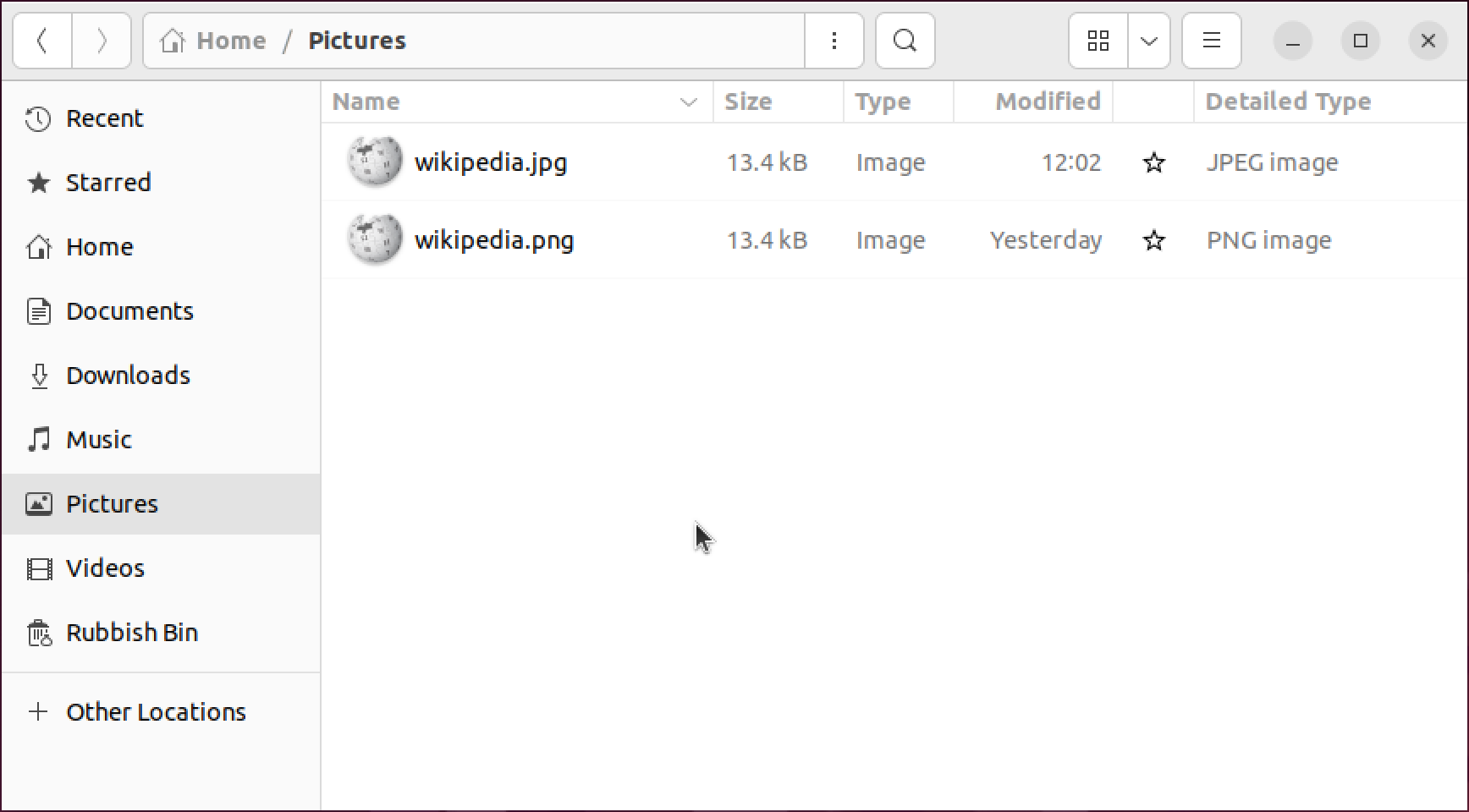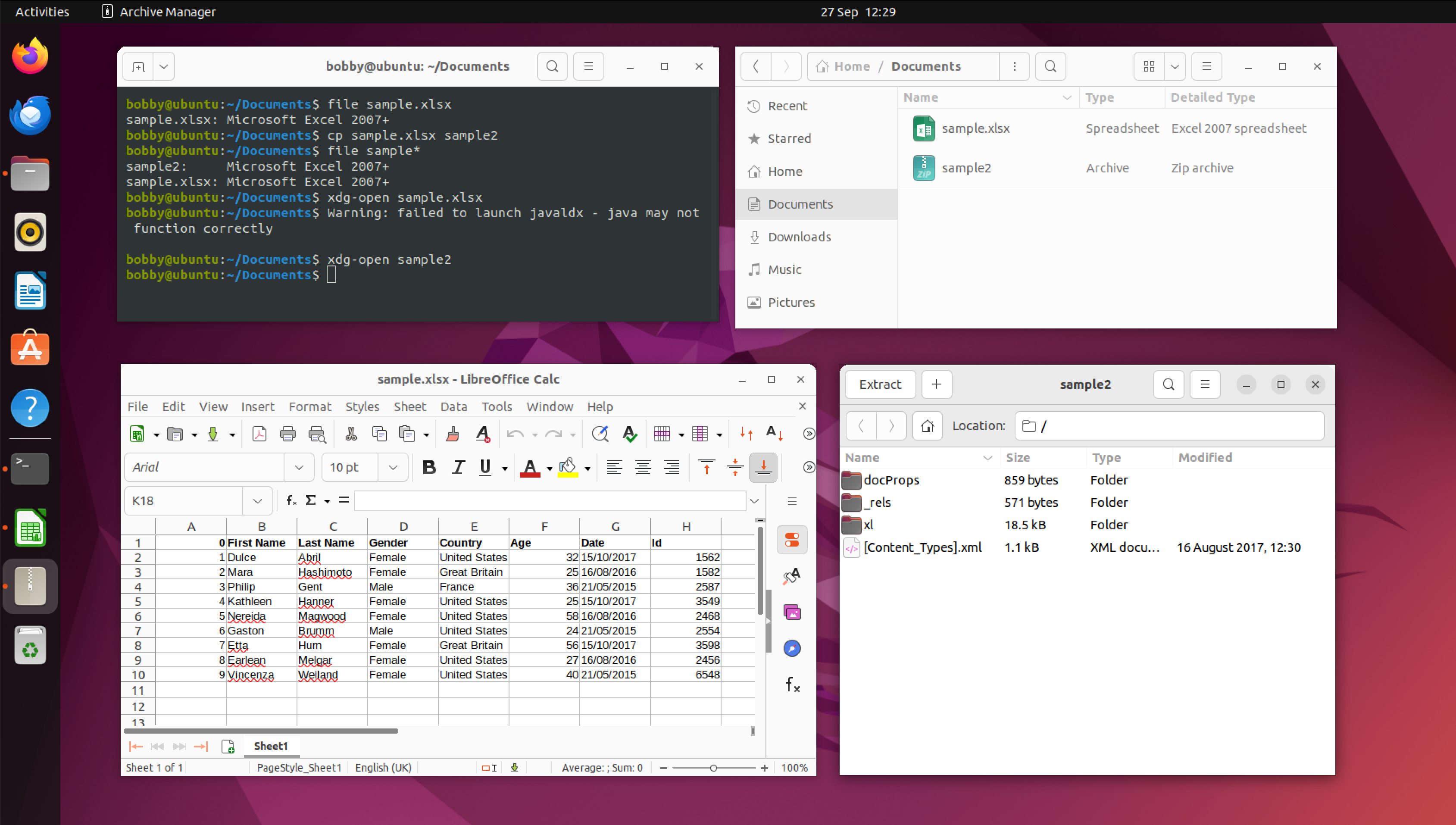Key Takeaways
- Linux typically doesn’t rely on file extensions; it gets a file’s type using “magic numbers” within the file itself.
- Linux apps, including GNOME Files, may still use extensions to determine file type.
- Using file extensions can help with interoperability and recognizing file types more easily.
You’re probably used to tracking and modifying file extensions in filenames, especially if you grew up with Windows. Linux, however, uses file extensions differently, in some cases ignoring them entirely. So what’s going on, and do extensions matter at all?
What’s Different About File Extensions on Linux?
Most computer systems, particularly Windows, use file extensions in one way or another. A file extension is the group of 2–4 letters (sometimes numbers) at the end of a filename. This may be “.html” for a web page, “.jpg” for a JPEG image, etc.
Some systems are very strict about extensions, which are effectively required. Linux is more flexible and, in many cases, does not really care about the file extension. You’re free to call your image file “octopus.png,” “octopus.image,” or even just “octopus.”
Why Extensions Don’t (Usually) Matter
Historically, Linux has differed from Windows, preferring to determine a file’s type via the contents of the file instead of its name. Each approach has its own advantages, so neither is right, wrong, or better than the other.
The standard way of finding a file type on Linux uses “magic numbers;” patterns of text, or raw bytes, which indicate a particular type of file. For example, the file command prints the type of a file:
Due to how Linux handles file types, you can change the extension of a file and the file command will still recognize its real type:
In general, apps will still work perfectly well, no matter what file extension you use. You can even remove the file extension altogether without damaging the file, and you shouldn’t have any problems. Until, of course, you do.
When Extensions Actually Do Matter
Linux tends not to care about file extensions, but apps are still free to behave however they want. Even core apps like GNOME’s Files (Nautilus) use extensions to determine file type. For example, here are two copies of the same file with different extensions:
Note that Files reports a JPEG type for the file with a JPG extension, even though it’s in PNG format. This may be because using a file extension is more efficient. The magic approach relies on opening the file and reading a certain amount of its contents. Inspecting the filename is a lot quicker, even if it’s less accurate.
Some file types rely on an extension more heavily. For example, an XLSX file is a type of compressed file, so the extension is important. Without it, an app like xdg-open won’t do quite what you’d expect. This example uses an Excel spreadsheet file named sample.xlsx and a copy of that file named sample2, with no extension.
While the file command recognizes both files as Microsoft Excel types, xdg-open is confused and opens the file without an extension using Archive Manager. Note that Files also reports it as a “Zip archive.”
It’s important to bear in mind that there are other good reasons for using file extensions:
- It can be useful to recognize a file’s type immediately from a file listing.
- It can make sense to group related files by their filename and use their extension to reflect their type. For example, in a C program, you may have a main.c file containing the code itself and a main.h header file containing a definition of the program’s interface.
- It will often make it easier to operate with different systems, that may rely on extensions, like Windows.
In summary, while you may not need to use file extensions, and it’s useful to understand their purpose in Linux, you should probably still use them to avoid any headaches.








